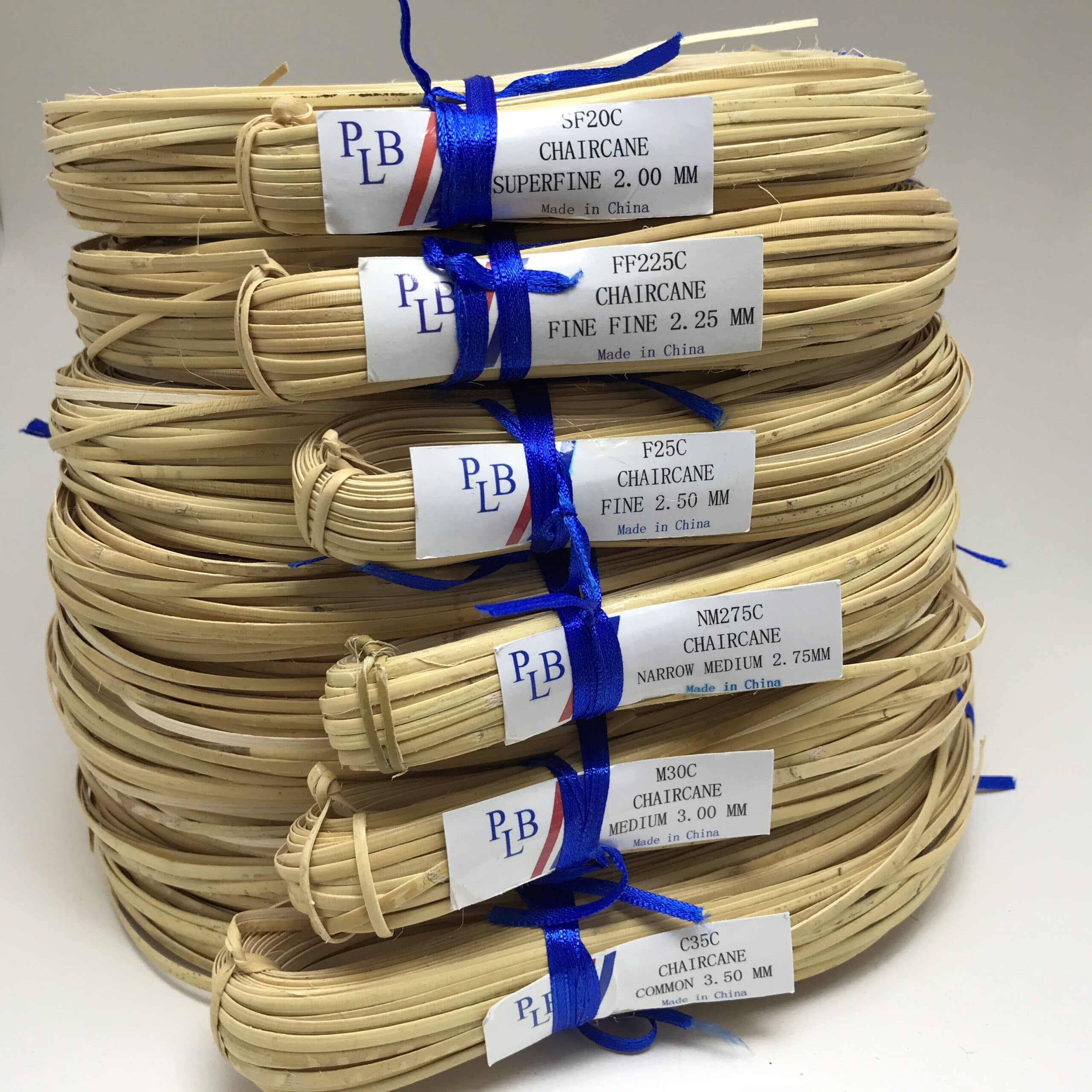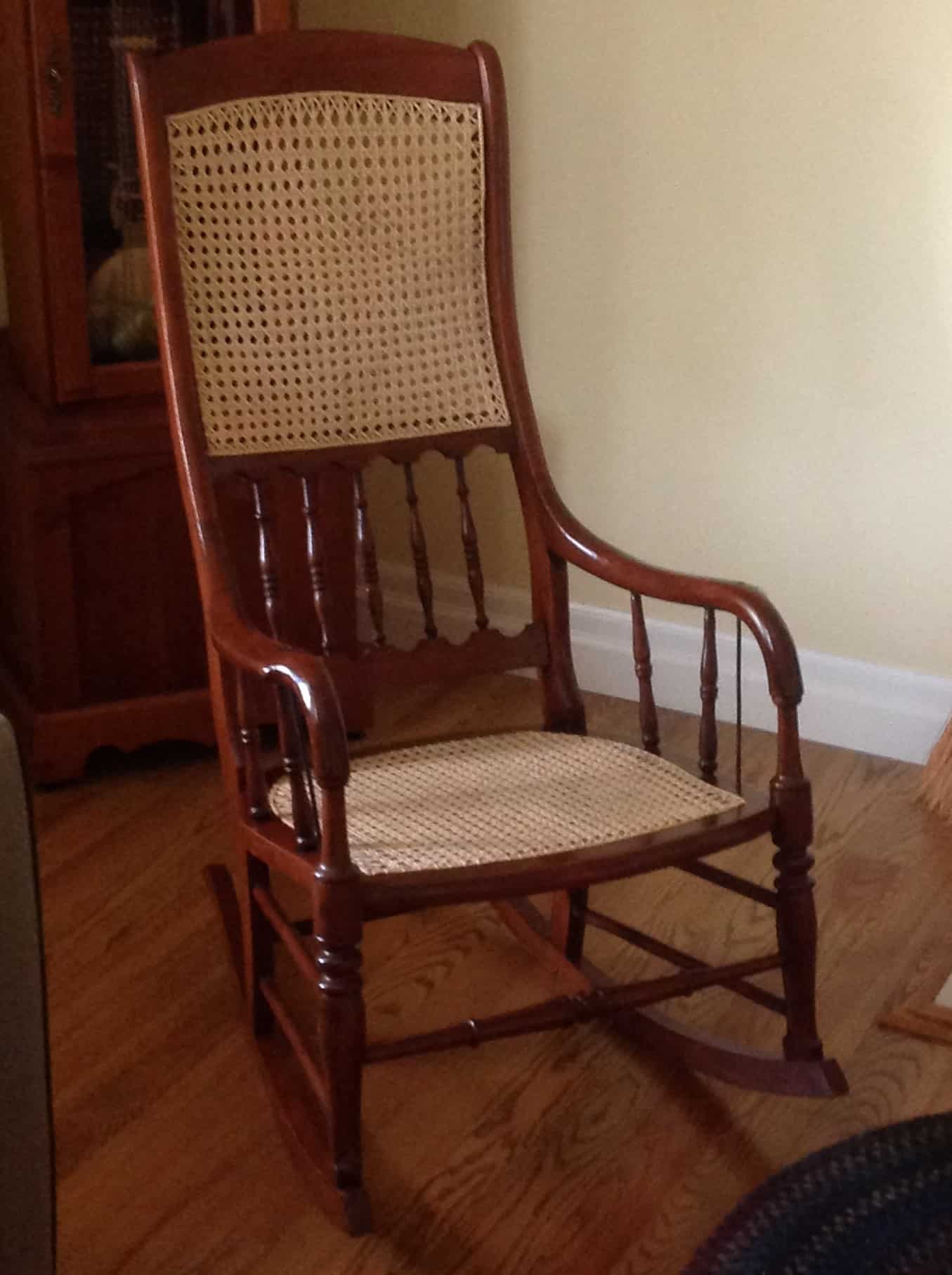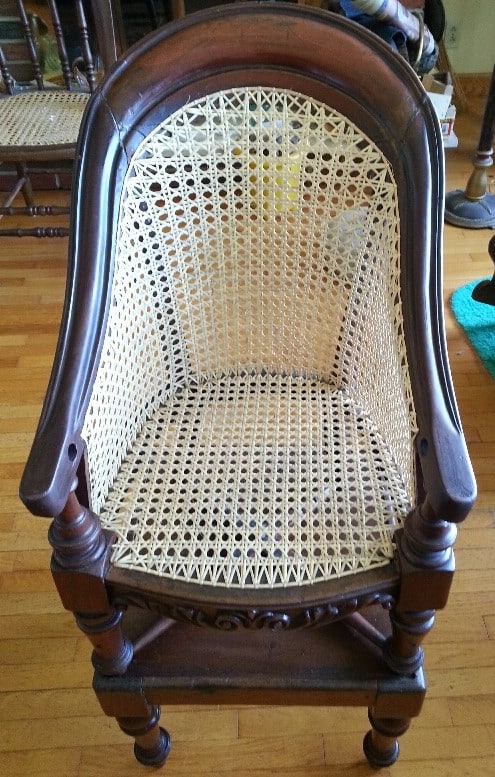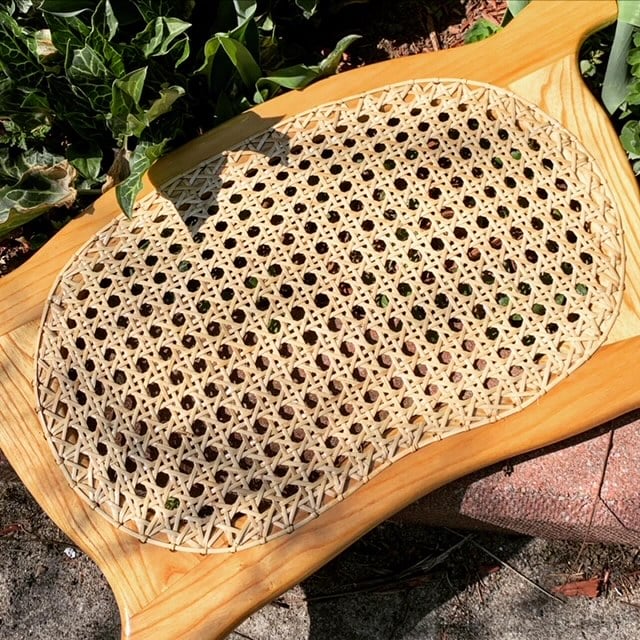| Size (mm) | Name | Size of drilled holes |
Distance between drilled holes (center to center) |
| 1.5 mm | Carriage | 1/8″ | 5/16″ – 3/8″ |
| 1.75 mm | Superfine | 1/8″ | 3/8″ |
| 2 mm | Extra Fine Fine | 1/8″ | 3/8″ |
| 2.25 mm | Fine Fine | 3/16″ | 1/2″ |
| 2.5 mm | Fine | 7/32″ | 5/8″ |
| 2.75 mm | Narrow Medium | 1/4″ | 11/16″ |
| 3 mm | Medium | 1/4″ | 3/4″ |
| 3.5 mm | Common | 5/16″ | 7/8″ |
Strand cane is cut from the outer bark of the rattan palm. It’s a climbing vine that grows to the top of tropical forest canopies. It’s durable yet supple seating material has been used for hundreds of years and is suitable for a wide range of furniture styles. This strand cane is ideal for restoring a family heirloom or flea-market find, and can also be incorporated into new furniture. The face side is slightly curved and shiny, the back side is flat and matte. Cane can be stained but does not color evenly. Added finishes can make it brittle, we recommend leaving it natural.
Strand cane is used in chairs and canoe seats that have holes drilled around the perimeter of the seat. The process consists of weaving strands of cane through these holes to form a desired pattern. A full hank is 1000 feet and should do 4 average seats (each 144-168 sq. inches, approx. 72 holes).
For canoe seats the 3mm medium cane – 500 feet will do up to 4 seats.












Reviews
There are no reviews yet.